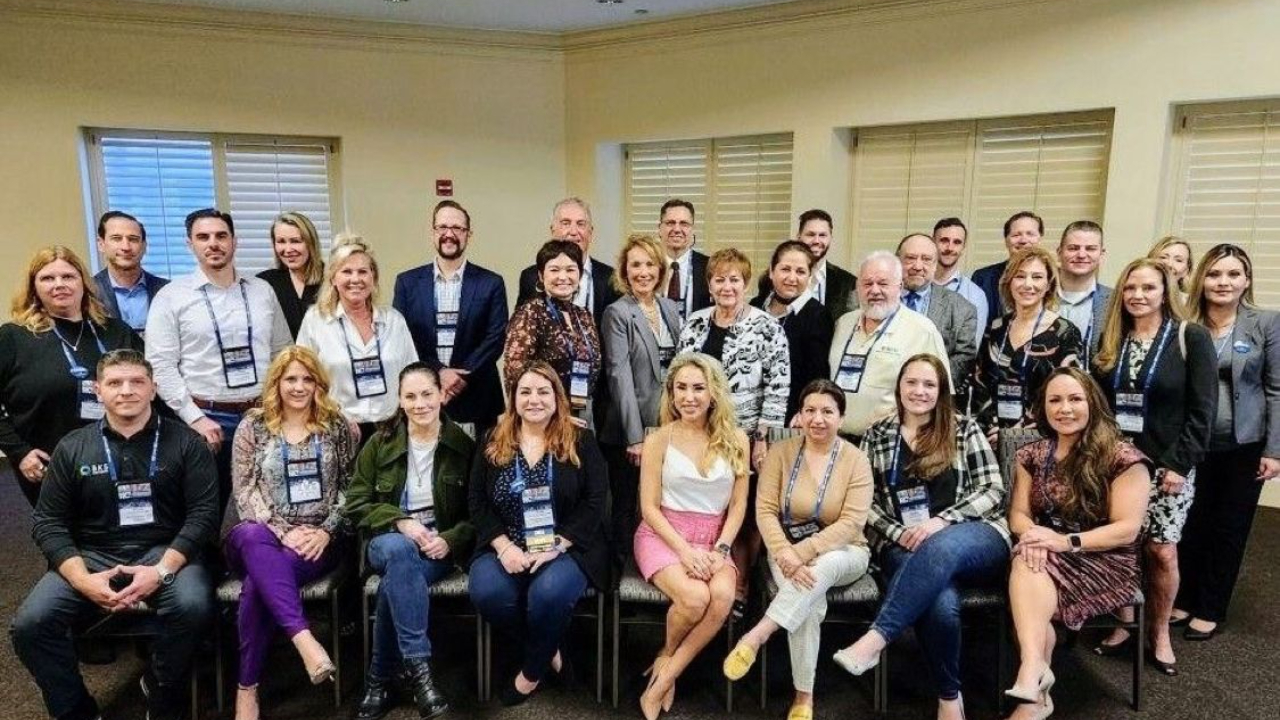Blog
Stay up to date with all the latest community association industry news. Subscribe to this blog and receive notifications of new posts by email here
2022 HOA Case Law Review

By Nicholas A. Rogers, Esq.
California Appellate Courts issued several important opinions addressing issues in community association law in 2022, including whether to award prevailing party attorney fees in an election challenge, affirming rules relating to Strategic Lawsuits Against Public Participation (SLAPP), the importance of complying with the pre-litigation Alternative Dispute Resolution (ADR) requirements, the consequence of failing to accurately complete an application for association insurance, and the role of equity in enforcement disputes.
PREVAILING PARTY ATTORNEY FEES
Artus v. Gramercy Towers Condominium Association (2022) 76 Cal.App.5th 1043
The Davis-Stirling Common Interest Development Act (CID Act) provides that in an action to enforce the governing documents, the prevailing party is awarded reasonable attorney fees and costs. A long line of published appellate opinions have affirmed a prevailing party’s right to such fees is mandatory. In Artus v. Gramercy Tow...
Report from the Trenches: Best Practices for Representing Associations in Small Claims Court

By Karen St. Onge, Esq.
This article first appeared in our Fall 2022 Communicator Magazine.
Although attorneys advise homeowner associations and community managers in preparation for appearing in small claims court and assist with appeals, more often community managers and board members go it alone since the amount in controversy does not seem to warrant the expense. (CCP §116.530, 116.540, Civil Code §4100). Here is what senior community managers in the Bay Area and Central Valley had to say about their experiences in small claims court.
FIRST SIGNS YOU ARE HEADING TO SMALL CLAIMS COURT
According to a manager who has appeared hundreds of times in small claims court, the first sign that the association is going to get sued by a member of the association is a request for association records. The first thing she does is open a file and starts tracking everything that is requested and produced, in detail, and document every interaction with that member.
SHOULD YOU FILE IN SMALL CLAI...
Assembly Bill 1410 Legislative Update

By Stephen T. Brindle, Esq.
Governor Newsom signed Assembly Bill (AB) 1410 on September 30, 2022, which took effect on January 1, 2023. Adding to existing law prohibiting community associations from restricting the free speech rights of members or residents, the bill prohibits associations from:
- Prohibiting members or residents from using social media or other online resources to discuss issues of concern to them, even if the content is critical of the association or its governance
- Retaliating against members or residents for exercising their free speech rights
- Prohibiting owners from having roommates; and
- Enforcing governing document violations (except for nonpayment of assessments) during declared state or local emergencies if the nature of the emergency would make it unsafe or impossible for owners to prevent or fix the violation
CAI-CLAC successfully convinced legislators to remove some of the more onerous provisions considered for the bill, including those that would req...
2023 Community Association Law Seminar Highlights

By Terri Guest, CIRMS, CMCA
As a Community Insurance and Risk Management Specialist (CIRMS), I enjoy attending the annual Community Association Law Seminar hosted by CAI National. This year, I was joined by CAI BayCen President-Elect, Charlotte Allen, CIRMS, CAI BayCen Director, Melissa Ward, Esq., CCAL, and several California CAI Chapters members.
The event was held in New Orleans, providing a beautiful backdrop for education targeted to attorneys and insurance professionals. The event kicked off with CCAL President David Graf, Esq. providing a welcome and reminding everyone that mental health is something we all need to talk about. His open and honest introduction segued perfectly to our keynote speaker, Briana Scurry, who shared her personal struggle with mental health since being a part of the Gold Medal US Women’s National Soccer Team. From there, concurrent sessions covered topics ranging from ADU’s, conducting business through WhatsApp, bullying, ethics and attorney wellne...
What’s in Your Trash?

California’s New Composting Law
By Aaron A. Hayes, Esq.
This article first appeared in our Fall 2022 Communicator Magazine.
Green compost bins will soon join California’s familiar blue recycle bins along our curbs as the latest trend in waste management. While already familiar in some areas, Senate Bill ("S.B.") 1383 extends mandatory organic waste composting statewide as part of California’s comprehensive Short-Lived Climate Pollutants strategy.
S.B. 1383’s stated goal is to substantially reduce organic waste in landfills by requiring cities and towns to collect compostable waste separately from other refuse, then divert it to approved organic processing facilities. Although S.B. 1383 became effective January 1, 2022, local jurisdictions have until January 2024 to become fully compliant.
SIGNIFICANCE OF SB 1383 FOR COMMUNITY ASSOCIATIONS
Planned Developments
Planned developments consisting of single-family homes will likely see little operational change at the association level...
Why Balance Sheets Matter

By D.W. Haney, CPA (Retired)
Most HOA disputes, dysfunctions, and disruptions are due to financial and standard of care stewardship issues. Who pays what, when, and why? And unfortunately, HOA financial statements produced today are misleading and fail to reflect the community’s economic reality.
In general, HOA directors, managers, and advisors do not have the skill sets necessary to understand, analyze, and respond to the financial statement stories contained in GAAP (Generally Accepted Accounting Principles) compliant financial statements. These statements are a foreign language to most, who oftentimes do not seek the advice of financial translators and guides to help them on this important piece of the HOA journey.
One big piece in this puzzle is the Statement of Financial Position (balance sheet). Here we will examine the three different methods to tell the financial strength story: cash basis, full accrual, equity designation. (There is a fourth method on the scene right now—c...
Investigating Suspicious Financial Activity in Your HOA

By Joe Garza, CPA
Today, a homeowner’s association’s (HOA) board of directors depends on technology to store contracts, banking information, and other confidential documents. Unfortunately, while digitization increases efficiency, it also intensifies the potential for fraud and theft of community funds. Even with checks and balances, like collective oversight of a community’s financials from board members and community managers, an association’s money can still be at risk.
Managing an association’s account manually and collectively elevates the opportunity for mistakes to happen, making it crucial to differentiate human error versus ill intent. While it’s a board’s fiduciary duty to protect the financial health of its HOA, board members must also remain respectful, objective, and observant. If you see something, do something. Here are steps for investigating suspicious financial activity that may be going on in your HOA and tips for protecting your association’s finances.
UNDERSTAND...
BIAS in Our Communities: Strategies for Recognizing, Managing, and Eliminating Bias in HOAs (First in a two-part series)

Bias is a buzzword we hear often in today’s world, but for many it is difficult to understand or accept. Many approach the topic as though the goal is to "empty our minds" of bias (as if that were possible). However, the less we focus on and are aware of bias, the harder it is to recognize, identify, and control our biases so that they do not result in unintentional harm to others through unexamined discriminatory and prejudicial actions.
Here we will define bias and look at the way unintentional bias affects our behavior as individuals, community members, HOA members, directors, managers, and attorneys. We’ll consider the ways in which bias affects our communities in the form of laws, rules, policies, and documents and the way that we enforce these community covenants. We’ll consider the role of bias in our community interactions and how unlawful prejudice and discrimination resulting from bias exposes our communities to considerable legal risk. Finally, we’ll look at several ways th...
When to Re-pipe Your Community and How to Fund It

By Eric Lecky
As Every Community manager and community association leader knows, building components begin to fail as they age—and your pipes are no exception. Depending on the material, a building’s pipes may begin to develop age-related cracks and leaks within a few decades of installation, sometimes less.
The question then becomes: When do you repair the pipe and when do you replace the entire piping system?
KNOWING WHEN TO RE-PIPE
Based on estimated useful life tables, some piping materials may begin to fail after 30 years, while others may not show signs of age until 50 years. Because pipe replacement is expensive, you could start assessing your piping systems periodically when your building reaches 20 years old, giving yourself time to reserve funds for a future re-pipe.
Unfortunately, most community managers and boards aren’t regularly testing their pipes, and so they first face the decision to repair or replace when their properties are already experiencing frequent leaks ...
Beyond the Water: Effectively Managing Lake and Pond Shorelines

By Trent Nelson
Imagine taking an evening walk as the sun sets across the beautiful lake or pond in your community. The sky is pink and orange, crickets are chirping, and a warm breeze blows across the water. Now, imagine looking down at the steep shoreline in front of you, finding that it’s bare, crumbling, and so unstable that you’re wary to venture to the edge. Not only is this an unsightly and even dangerous distraction, but it can make residents question the management priorities of their association and deter new homeowners from settling down in the community.
Even the most well-cared-for lakes and ponds are incomplete without regular shoreline maintenance. Preventive management is necessary to support the health and longevity of the overall ecosystem, and management efforts can vary for each part of the shoreline. However, before jumping into implementing proactive and ongoing strategies, existing erosion issues must be addressed.
The most effective solution for severe erosio...
